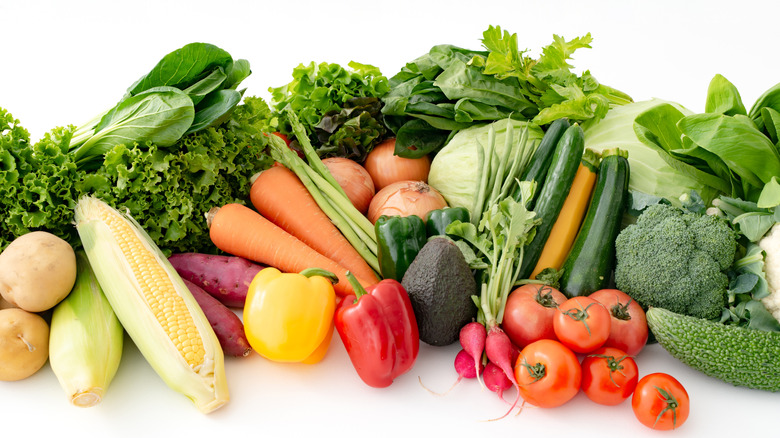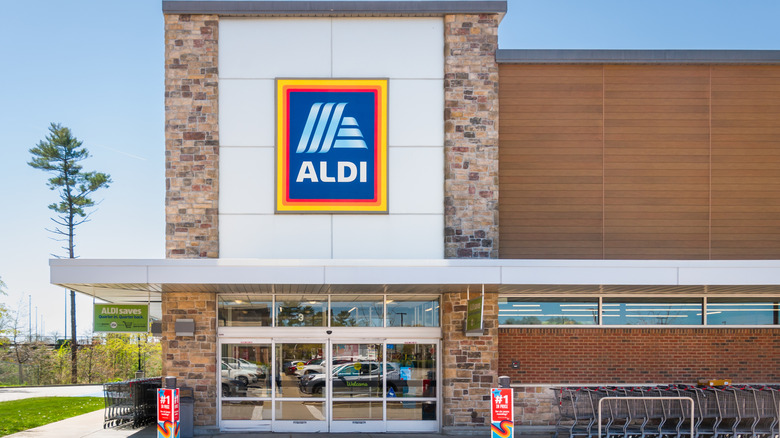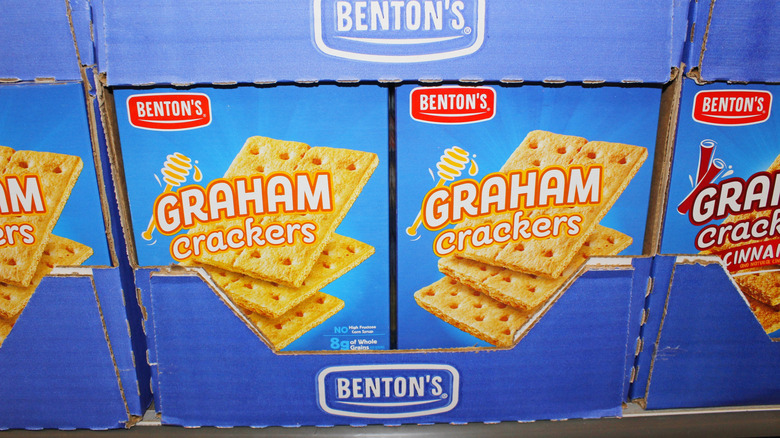The Popular Grocery Chain That's Opening Over 200 New Stores In 2025
The United States is home to plenty of big footprint, big chain grocery stores, with big prices to match. Shrinkflation and inflationary events seem to have a chokehold on everything from the skyrocketing price of eggs to almost all other grocery prices in 2025. However, one small-format grocery chain known for its consistently low prices (and ever-rotating aisle of seasonal goodies) is experiencing supersized growth across the U.S. in 2025 — and not because the chain is raising prices or shifting to pricier, "premium" offerings.
If your neighborhood doesn't already have a small discount market with a quarter-required cart corral in the parking lot, chances are, it will soon. On February 7, 2025, Aldi announced its plan to open more than 225 new stores across America in 2025. The move marks the German discount grocery chain's biggest single-year stateside expansion since the company first came to the U.S. in 1976.
The expansion announcement comes hot on the heels of the chain's growth in 2024, when Aldi opened 120 new stores to bring its grand U.S. retail location total to somewhere above 2,400 stores, making it one of the country's top grocers by store count. While Aldi may forever trail behind that other discount grocery powerhouse, Walmart (with 4,605 U.S. locations), Aldi has big plans to continue building upon its own decades of steady expansion. Aldi also plans to invest $9 billion to add 800 new stores to its U.S. roster by 2028.
Expansion strategy and locations
Aldi will be achieving its immediate expansion via a mix of new builds, as well as remodels of some previously acquired grocery stores to the Aldi format. The Batavia, Illinois-based Aldi U.S. acquired Jacksonville, Florida-based Southeastern Grocers (SEG) in early March, 2024. Southeastern is the parent company of Winn-Dixie and Harveys Supermarkets.
A number of the 400 SEG stores acquired by Aldi will still largely operate as Winn-Dixie and Harveys stores, but 100 locations will have completed their conversion to Aldi stores by the end of 2025, with a goal of 220 former SEG locations eventually converting to Aldi stores in total. This allows Aldi to further expand in Southeastern states including Florida, Louisiana, and Georgia. Per Aldi's February 2025 press release, new (and sometimes more) near-future Aldi stores can also be counted on in the Midwest and Northeast, as well as Arizona, Southern California, and Las Vegas.
It should be noted that while Aldi has opened about 100 new stores per year since the '70s, the chain's acquisition strategy is a bold strike into rapid expansion for Aldi. Aldi even sold off 42% of stores it bought from SEG to a private investor group including the president of SEG, and C&S Wholesale Grocers, in February 2025. This move is especially intriguing, considering the 2024 Federal and State courts both blocking a merger between Kroger and Albertsons. Those mega-grocer Goliaths couldn't pass regulatory antitrust muster, but the strategic maneuvers of the small-footprint, no-frills Aldi SEG acquisition certainly did.
Private label prowess
Aldi's growth from 300 U.S. locations in 1976 to 3,200 U.S. locations by 2028 means a few things. Chief among them: demand for cheap groceries has only grown since Sylvester Stallone's "Rocky" first opened in theaters. Aldi keeps costs down with its no-frills, small-format stores, as well as primarily selling 90% private label products. Anyone old enough now to remember shopping for Aldi-brand cereal as a kid in the '80s or '90s might have hungered to eat name-brand Wheaties — but today, more shoppers than ever are clamoring for private label savings.
Per January 2025 data from the Private Label Manufacturers Association, private label sales climbed 3.9% across all outlet from 2023 to 2024, outpacing national brand growth at 1%. Per the same data, in the last four years, private label sales have grown by 23.6%, while national brand sales have dropped by 6.8%. While data like this can normally be a little difficult to parse, it isn't too hard considering the pinch shoppers have felt when it comes to grocery shopping since the lockdown era of the COVID-19 pandemic.
Grocery prices have gone up 31% since 2019 alone. A variety of factors impact grocery prices, from labor costs to supply chain issues to climate crises to good ol' corporate greed. Whatever the reasons prices keep rising, people keep needing to eat. Shopping for quality doesn't necessarily mean shopping for brand names, and Aldi's growth story is proof in the store-brand pudding that more shoppers than ever are willing to skip name brands in favor of good eats clever Aldi shopping tricks for great savings.


